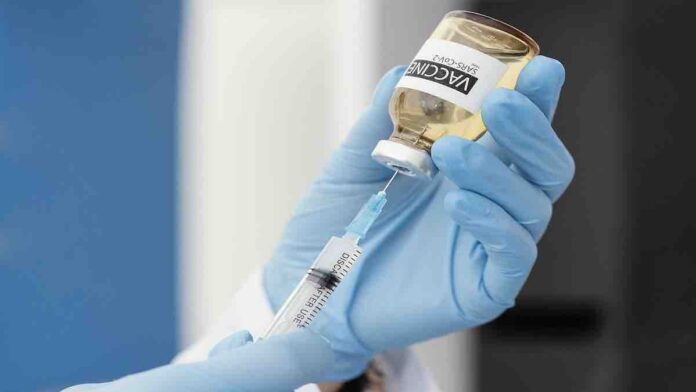India and South Africa in a joint request to the World Trade Organization (WTO) requested for waiving of Intellectual Property Rights on COVID Vaccines, which got support from most of the developing countries including the United States of America and the European Union but it was resisted by the United Kingdom of Britain and Japan.
Can waiver of Intellectual Property Rights on COVID Related Vaccines help boost vaccine manufacturing?
Also Read
The patent being one of the constituents of Intellectual Property, under the legal framework, provide the monopolistic right to the creator/ owner of an invention to make, use, manufacture and market the invention, provided the invention is patentable subject and meets the three statutory requisites i.e. novelty, inventive step and industrial application.
The patent holder has the right to economic exploitation of his patent for commercial gain. Under the Patent Act, 1970 (for short the Act) patentee has the power to assign, grant licenses or otherwise deal with the patent for any consideration. The patentee may grant license voluntarily to any person who may approach him for the right to work the invention. The voluntary license may be exclusive, non-exclusive or sole license.
Exclusive License permits the licensee to exploit the invention and therefore excludes all other persons from doing so including the patentee. In the case of exclusive license the licensee has independent right to start infringement proceedings under of the Act. Further reference to an exclusive licensee is made dealing with government use of inventions under Section 161 of the Patent Act.
Exclusive licenses may be limited to a territory for example, a particular geographical boundaries or region, to a particular field of use, or to a specified period of time. A Patent holder may, therefore, retain the right to exploit the invention in other territories of fields of use or to license patent rights to different entity perhaps also on an exclusive basis.
However, sole license permits the patentee to work the patent but prevents the grant of additional licenses as opposed to an exclusive license, which excludes the patentee from exploiting the patented inventions. Further, non exclusive license allows the patentee to retain the right to exploit the licensed property as well as the right to grant additional licenses to unlimited number of third parties.
Compulsory licensing is a tool for balancing the individual monopoly property right and the public’s access to the benefit of invention. Article 8(1) of the TRIPS agreement allows members to take steps for protection of public health and nutrition and promoting public interest vitally important to their socio economic and technological development, while rejecting the prayer for grant of stay/ injunction
In Patent Law, Controller General may grant compulsory licenses to the third party to make use or sell a particular product or use a particular ‘process’ which has been patented, without the need of permission of patent owner. Concept is recognised at both national as well as international levels with express mention in both Indian Patent Act 1970 and TRIPS Agreement (Article 31). There are certain pre-requisite conditions given under Section 84-92, which need to be fulfilled if Compulsory License is to be granted in favour of the applicant.
In terms of Section 84 of the Patent Act, any interested person, can make a request to the Controller for grant of Compulsory License on expiry of three years, when any of the following conditions is fulfilled. (1) Reasonable requirement of the public with respect to the patent invention have not been satisfied. (2) If the patented invention is not available to the public at reasonable prices/ affordable prices and (3) that the patented invention is not worked in the territory of India.
Compulsory license can also be issued suo moto by the Controller under Section 92, pursuant to a notification issued by Central Government if there is either a national emergency or extreme urgency or in case of public non-commercial use.
Controller also takes into account other factors like the nature of invention, capability of the applicant to use the product for public benefit and reasonability but the ultimate discretion lies with him to grant compulsory license.
Section 90 of the Act provides terms and conditions for issuing Compulsory License, which are reproduced herein under:
1. Royalty and other remuneration, reserved to the patentee or other person beneficially entitled to the patent, is reasonable having regard to the nature of invention, the expenditure incurred by patentee in making the invention or in developing it and obtaining a patent and keeping it in force and other relevant factors;
2. Patented invention worked to the fullest extent by the person to who the license is granted and with reasonable profit to him.
3. Patented article are made available to public at reasonable affordable prices.
4. License granted is non exclusive license.
5. Right of the licensee is non assignable.
6. License is for the balance term of the patent unless shorter term is consistent with public interest.
7. License is granted with predominant purpose of supply in Indian market and that the licensee may also export the patented product, if need in accordance with Section 84 (7) (a) (iii) of the Act.
8. In the case of semi conductor technology license granted is to work the invention for public non commercial one.
9. In case the license is granted to remedy a practice determined after judicial or administrative process to be anti competitive the licensee shall be permitted to export the patented product.
With respect to compulsory license granted as a result of national emergency, extreme urgency or as result of public non-commercial use such licenses are published by Central Government in Official Gazette. Once licenses are published the Controller will grant compulsory license to any interested person who applies for such a license. Granting of Compulsory License under Section 92(1) cannot be challenged by patentee either through an opposition proceeding or in Court. However, Controller is required to notify the patentee of the granting of Compulsory License.
However, patentability of invention may be excluded particularly in pharmaceutical and medical health care to protect public health by the WTO member countries, in terms of Article 27(2) of the TRIPS Agreement. WTO allows members countries to place limited exceptions to the rights conferred by a patent especially in the light of Article 30 of the TRIPS Agreement. Further, TRIPS provide other ‘flexibilities’, to allow governments to waive IP rights in the interest of public health.
It further provides that in cases of public health crises, relating to AIDS, HIV, Tuberculosis, Malaria or other epidemic the Controller shall not apply section 87 procedure requirement. In case of compulsory license for export of patented pharmaceutical products in certain exceptional circumstances, Article 31(f) of the TRIPS Agreement undermined the need for the availability of medicines to the countries having less or no manufacturing capacity through import from other countries.
WTO adopted a mechanism to resolve this problem by implementing Para 6 of the Doha Declaration on TRIPS Agreement and Public Health on August 30, 2003. Obligation under Article 31(f) of the TRIPS Agreement was thus waived off in case of export of pharmaceutical products to the countries having least or no manufacturing capacity provided the eligible members have made a notification to the Council for TRIPS.
In order to incorporate the provisions of TRIPS agreement in the Indian Patent Act the same was amended on January 1, 2005 and Section 92A was introduced for grant of Compulsory License for export of pharmaceutical products in certain exceptional circumstances.
Compulsory License under the said section can only be granted if the importing country has also granted Compulsory License or by notification allowed importation of patented pharma product in India. This condition is not applicable for least developed countries having no patent regime. Least developed countries are only required to notify the council of WTO about their willingness to import the pharma product subject to Para 6 of the Doha Declaration.
Section 83(a) provides that patentee must work the invention in India on commercial scale to the fullest extent as is reasonable and practicable and without delay. Grant of patent certainly does not imply that the inventor will enjoy monopoly for importation. Patentee has a duty to make it available to public at a price which the public can reasonably afford and in the manner conducive to public as per the socio economic welfare and shall balance rights and obligation. Patentee must not impede protection of public health and good nutrition. Patentee cannot counter any governmental measure to protect public health.
Prima facie Court held that patentee failed to show through its own supply has satisfied reasonable requirement of public and by its supply, the drug is made available at reasonably affordable price.
Instead, the Government seeking waiver of Intellectual Property Right on COVID Vaccine related innovation should encourage patent holders by providing incentives to enter into licensing agreement with other pharmaceutical companies in the country by issuing voluntary license qua their patents and further helping production by reducing regulatory risks for vaccine suppliers to operate.
It is noteworthy that many vaccine manufacturers had licensing agreements with vaccine manufacturers to boost the production of vaccine in large quantities. Recently, it is reported that the Serum Institute of India (SII) who earlier had a licensing agreement with Oxford/Astra Zeneca to produce the “Covid-19” vaccine had now also having licensing agreement to manufacture “Sputnik-V”.
Similarly, if other vaccine manufacturers also enter into licensing agreement with vaccine manufacturers surely India will be in a position to provide not only to its citizen but to other developing and least developing countries. Additionally, Governments (particularly India) being sovereign and welfare state should be co-innovators and/or investors in vaccine development to enable mass production by issuing voluntary licenses. Further, Drug Controller to ensure regulatory approvals are expedient for those vaccines which are approved by the WHO.
Unfortunately, the waiver of Intellectual Property Right on COVID related vaccine will not lead to immediate mass production. There are several steps/processes involved in developing and manufacturing and intricate intellectual property has also its role to play. Various IP rights apply at different levels/steps/process of manufacturing. It is not a case where lone IP could unlock the confidential manufacturing of vaccine. Patent protects the knowledge of main ingredients required for manufacturing vaccine and the process of stimulating a biological reaction to build immunity. Process to manufacture it may be protected as a ‘trade secret’, and the data from clinical trials to test vaccine safety and efficacy may be protected by copyright. Thus, a patent waiver alone does not enable manufacturers to start vaccine production immediately. They will need to design the process for manufacturing the vaccines, source necessary raw materials, build production facilities, and conduct clinical trials to get regulatory approvals. It’s a long way.
Author:
Shri Gaurav Dhingra,
Advocate On Record,








